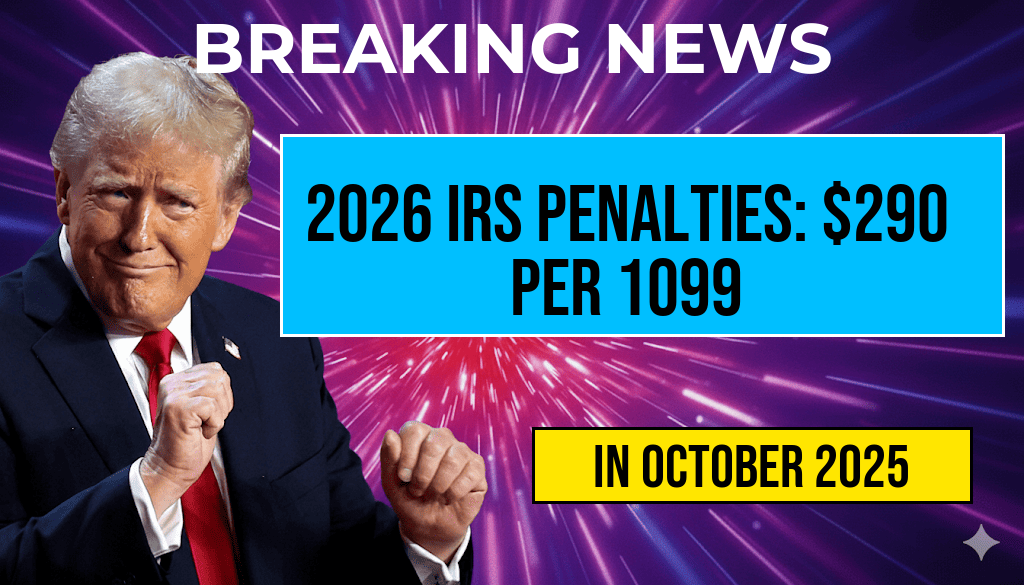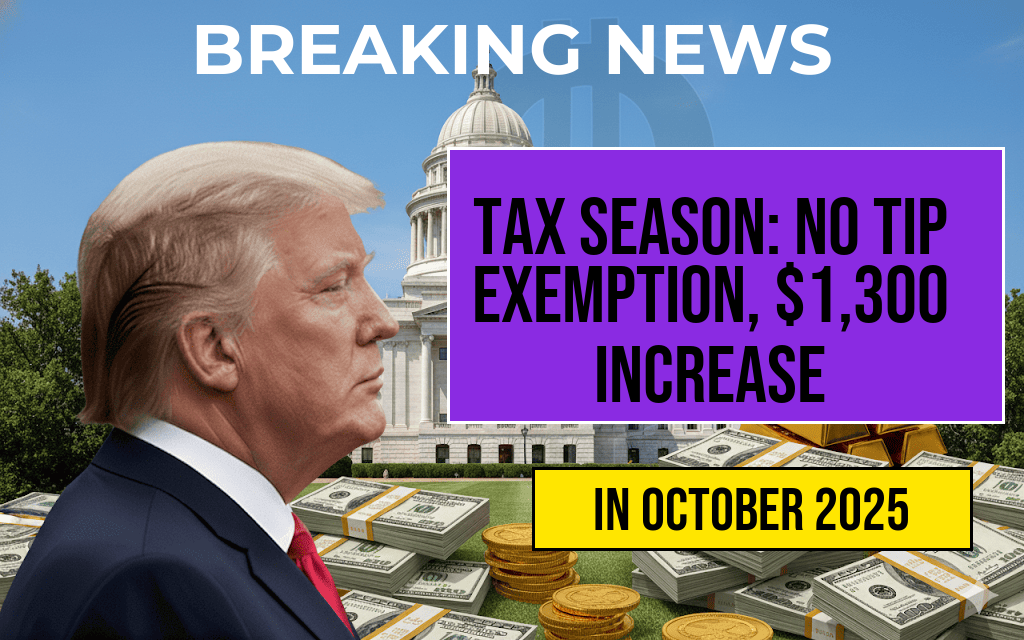The Internal Revenue Service (IRS) has announced new penalties effective for the 2026 tax year, targeting taxpayers and businesses that fail to file or furnish Form 1099s accurately and on time. Under these regulations, missing a required Form 1099 could lead to a fine of up to $290 per form, significantly increasing the financial risk for small businesses, freelancers, and financial institutions. The IRS aims to enforce stricter compliance to improve tax reporting transparency and reduce revenue loss from unreported income. These penalties apply to both the failure to file and the failure to furnish correct information returns, with penalties escalating for intentional disregard or repeated violations. As the 2026 tax season approaches, understanding these new rules becomes vital for anyone involved in reporting payments made to independent contractors, freelancers, or other payees.
Understanding the New Penalty Structure for 2026
Scope of the Penalties
The IRS’s updated penalty framework targets entities that are required to file Form 1099-NEC, 1099-MISC, and other related information returns. These forms are used to report payments such as independent contractor compensation, rent, prizes, or other miscellaneous income. The new rules stipulate that failure to submit these forms or providing incorrect information can result in fines of up to $290 per form.
| Violation Type | Penalty per Form | Maximum Penalty per Year |
|---|---|---|
| Failing to file correct information return by deadline (non-willful) | $290 | Up to $1,177,500 |
| Intentional disregard of filing requirements | Minimum $580 per form, no maximum | Unlimited |
Triggering Penalties
Penalties are triggered when a responsible party fails to file a required Form 1099 or files it late, or if the form contains incorrect information that is not corrected within the specified period. The IRS emphasizes that even unintentional mistakes can lead to penalties, especially if multiple forms are involved or if the errors are repeated annually.
Impacts on Different Stakeholders
Small Businesses and Freelancers
Many small businesses rely heavily on independent contractors and gig workers. The new penalties underscore the importance of meticulous record-keeping and timely reporting. Failure to comply could result in fines that compound over the years, potentially impacting cash flow and operational budgets.
Financial Institutions and Payment Processors
Banks, payment platforms, and other financial entities are also affected, as they often are responsible for issuing or transmitting 1099 forms to the IRS. These entities will need to enhance their compliance systems to prevent inadvertent errors that could lead to costly penalties.
IRS Enforcement Strategy
The IRS has increased its focus on information reporting compliance, deploying advanced analytics and data-matching techniques to identify discrepancies. The agency has also committed to providing clearer guidance and support to taxpayers, including updated instructions and penalty notices.
Best Practices to Avoid Penalties
- Maintain detailed records of all payments made to independent contractors or service providers.
- Use reliable accounting software that can generate accurate 1099 forms automatically.
- Review all information for correctness before filing, especially taxpayer identification numbers (TINs) and addresses.
- File forms electronically before the deadline to reduce errors and avoid late penalties.
- Correct any mistakes promptly and file amended forms if necessary.
Resources and Further Reading
Taxpayers seeking more information on the new IRS penalties and compliance requirements can consult the official IRS guidelines at IRS Form 1099 or review updates on the IRS website. Additionally, for comprehensive details about tax penalties, visit Wikipedia’s page on Tax Penalties.
With the upcoming changes, proactive compliance becomes essential to avoid the financial repercussions of non-compliance. Staying informed and organized ensures that taxpayers and businesses can meet their reporting obligations efficiently, avoiding penalties that could impact their financial stability.
Frequently Asked Questions
What is the penalty for missing a 1099 form in 2026?
The IRS imposes a $290 fine per missing 1099 form filed late or not at all in 2026.
Who is affected by the 2026 IRS penalties related to 1099 forms?
Businesses and payers who are required to submit 1099 forms for payments made to contractors, freelancers, or vendors are affected by these penalties.
When is the deadline for filing 1099 forms in 2026?
The IRS typically requires 1099 forms to be filed by January 31 of the following year, so for 2026, the deadline is January 31, 2027.
Are there any exceptions or relief options for missing a 1099 form?
Exceptions may apply in cases of unintentional errors or if the payer corrects the mistake promptly. However, generally, the penalties still apply unless specific relief provisions are met.
How can I avoid penalties for missing 1099 forms in 2026?
To avoid penalties, ensure timely and accurate filing of all required 1099 forms. Using reliable accounting and reporting systems can help prevent oversights and late submissions.





